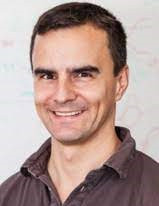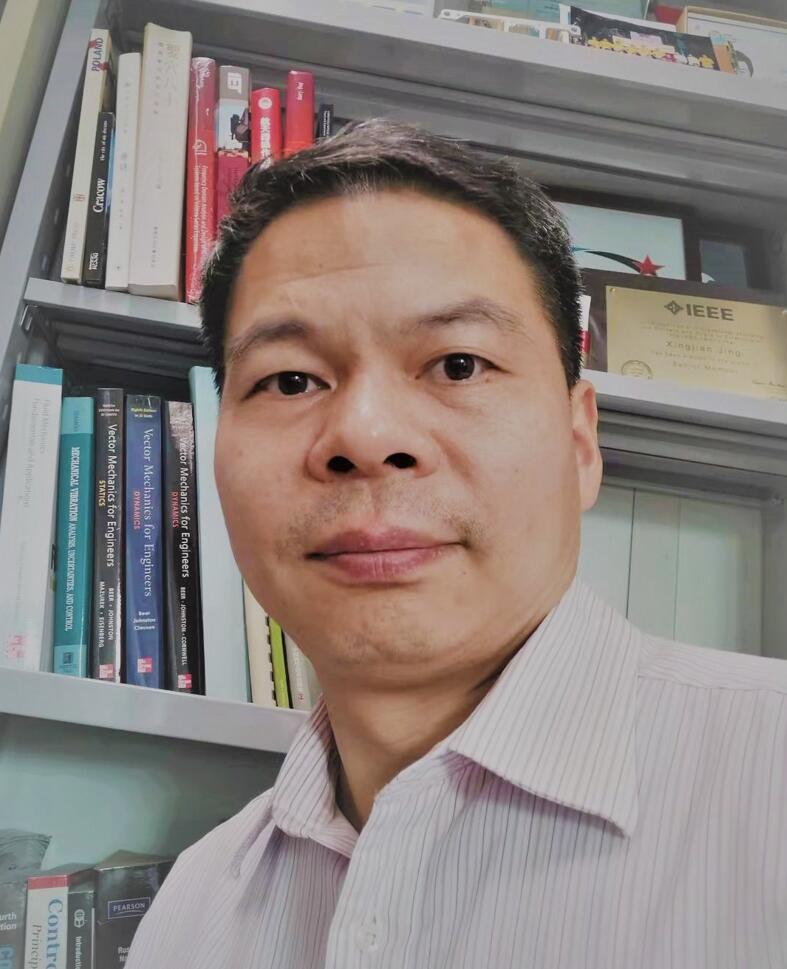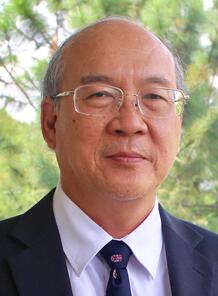Previous Speakers

Prof. Jan Peters, IEEE
Fellow
Technische Universitat Darmstadt (TU Darmstadt), Germany
Jan Peters is a full professor (W3) for Intelligent Autonomous Systems at the Computer Science Department of the Technische Universitaet Darmstadt since 2011, and, at the same time, he is the dept head of the research department on Systems AI for Robot Learning (SAIROL) at the German Research Center for Artificial Intelligence (Deutsches Forschungszentrum für Künstliche Intelligenz, DFKI) since 2022. He is also is a founding research faculty member of the Hessian Center for Artificial Intelligence. Jan Peters has received the Dick Volz Best 2007 US PhD Thesis Runner-Up Award, the Robotics: Science & Systems - Early Career Spotlight, the INNS Young Investigator Award, and the IEEE Robotics & Automation Society's Early Career Award as well as numerous best paper awards. In 2015, he received an ERC Starting Grant and in 2019, he was appointed IEEE Fellow, in 2020 ELLIS fellow and in 2021 AAIA fellow. Despite being a faculty member at TU Darmstadt only since 2011, Jan Peters has already nurtured a series of outstanding young researchers into successful careers. These include new faculty members at leading universities in the USA, Japan, Germany, Finland and Holland, postdoctoral scholars at top computer science departments (including MIT, CMU, and Berkeley) and young leaders at top AI companies (including Amazon, Boston Dynamics, Google and Facebook/Meta). Jan Peters has studied Computer Science, Electrical, Mechanical and Control Engineering at TU Munich and FernUni Hagen in Germany, at the National University of Singapore (NUS) and the University of Southern California (USC). He has received four Master's degrees in these disciplines as well as a Computer Science PhD from USC. Jan Peters has performed research in Germany at DLR, TU Munich and the Max Planck Institute for Biological Cybernetics (in addition to the institutions above), in Japan at the Advanced Telecommunication Research Center (ATR), at USC and at both NUS and Siemens Advanced Engineering in Singapore. He has led research groups on Machine Learning for Robotics at the Max Planck Institutes for Biological Cybernetics (2007-2010) and Intelligent Systems (2010-2021).
Robot Learning
Abstract: Autonomous robots that can assist humans in situations of daily life have been a long standing vision of robotics, artificial intelligence, and cognitive sciences. A first step towards this goal is to create robots that can learn tasks triggered by environmental context or higher level instruction. However, learning techniques have yet to live up to this promise as only few methods manage to scale to high-dimensional manipulator or humanoid robots. In this talk, we investigate a general framework suitable for learning motor skills in robotics which is based on the principles behind many analytical robotics approaches. It involves generating a representation of motor skills by parameterized motor primitive policies acting as building blocks of movement generation, and a learned task execution module that transforms these movements into motor commands. We discuss learning on three different levels of abstraction, i.e., learning for accurate control is needed to execute, learning of motor primitives is needed to acquire simple movements, and learning of the task-dependent „hyperparameters“ of these motor primitives allows learning complex tasks. We discuss task-appropriate learning approaches for imitation learning, model learning and reinforcement learning for robots with many degrees of freedom. Empirical evaluations on a several robot systems illustrate the effectiveness and applicability to learning control on an anthropomorphic robot arm. These robot motor skills range from toy examples (e.g., paddling a ball, ball-in-a-cup) to playing robot table tennis against a human being and manipulation of various objects.

Prof. Xingjian Jing, IEEE
Senior Member
City University of Hong Kong, Hong Kong
Prof X.J. Jing received his B.S. degree from Zhejiang University, Hangzhou, China, M.S. degree in Artificial Intelligence & Control, and PhD degree in Robotics both from Shenyang Institute of Automation, Chinese Academy of Sciences, Shenyang, China. He also achieved the PhD degree in nonlinear systems and signal processing from the Department of Automatic Control and Systems Engineering, University of Sheffield, Sheffield, U.K. He is now a Professor with the Department of Mechanical Engineering, City University of Hong Kong. Before joining in CityU, he was a Research Fellow with the Institute of Sound and Vibration Research, University of Southampton, working on biomedical signal processing, and thereafter Assistant Professor and Associate Professor with Hong Kong Polytechnic University. His current research interests are generally related to Nonlinear Dynamics, Vibration, and Control focusing on theory and methods for employing nonlinear benefits in engineering, including nonlinear frequency domain methods, nonlinear system identification or signal processing, vibration control, robust control, sensor technology, energy harvesting, nonlinear fault diagnosis or information processing, bio-inspired systems and methods, and robotics etc. Prof Jing currently serves as Associate Editors of Mechanical Systems and Signal Processing (MSSP), IEEE Transactions on Industrial Electronics and IEEE Transactions on Systems Man Cybernetics-Systems. He also served as Technical Editor of IEEE/ASME Trans. on Mechatronics during 2015-2020. He was the lead editor of a special issue on “Employing nonlinear benefits in engineering” published in the archive journal MSSP in 2019, lead editor of special issue on “Next generation of vibration control exploiting nonlinearities” published in MSSP in 2022, and served as the general chair of ICANDVC2021 Zhuhai, China. Prof Jing is a Senior IEEE member, and actively participate different R&D and scholar activities serving industry government programmes and international conferences.

Prof. Dr. Thuong Le-Tien, IEEE
Member
Ho Chi Minh City University of Technology, Vietnam
Thuong Le-Tien (IEEEM’96) is a full Professor at the HoChiMinh City University of Technology (HCMUT). He received the Bachelor’s and Master’s Degrees in Electronics Engineering from the HCMUT, and the Ph.D.Degree in Electronics-Telecommunications from the University of Tasmania, UTAS, Australia. Professor Le-Tien has been a Faculty Member with the Electrical Electronics Engineering Faculty, HCMUT since 1981 todate. He was a Visiting Scholar with the Ruhr University Bochum, Germany, from 1989 to 1992. He has been the Associate Researcher at the UTAS from 2000 until 2006, then Visiting Professor for teaching, seminars, research collaboration at Mannheim University of Applied Science (since 2009), University Paris-13 (since 2001) todate. He served as the Deputy Department, Head for many years then Telecommunications Department Head from1998-2002. He was also appointed as theDirector of the Center for Overseas Studies at the HCMUT from 1998 until 2009. He has authored over 160 research articlesand many teaching textbooks for university students related to Electronics 1& 2, Antenna and Wave Propagation, Digital Signal Processing and Wavelets,and Communication Systems. His current researches interest including to Image & Biomedical Signal Processing, Digital Communication Systems and Electronics Circuits. Professor Le-Tien has honored the title as a National Distinguished Lecturer and various Certificates for his Engineering Education Contribution from the Academic State Council , the chairman of National and the President of the National University of Ho Chi Minh City. He was also listed in theWho‘s Who In The World– Millennium 2000, Marquis, USA.
Previous Plenary Speaker

Assoc. Prof. Dr. Nguyen Chi Ngon
Can Tho University, Vietnam
Nguyen Chi Ngon received his bachelor and master degrees in electronic engineering from Can Tho University and the Vietnam National University, Ho Chi Minh City University of Technology, in 1996 and 2001, respectively. The degree of Ph.D. was awarded by the University of Rostock, Germany, in 2007. Since 1996, he has worked at the Can Tho University. Currently, he is an associate professor in automation at Department of Automation Technology, and a Vice Chairman of the Board of Trustee of Can Tho University. He is also a national-distinguished lecture and a secretary of the national council for professorships in Electrical-Electronics and Automation. His research interests are AI applications, intelligent control, medical control, pattern recognition, classifications, computer vision and agricultural automation.
